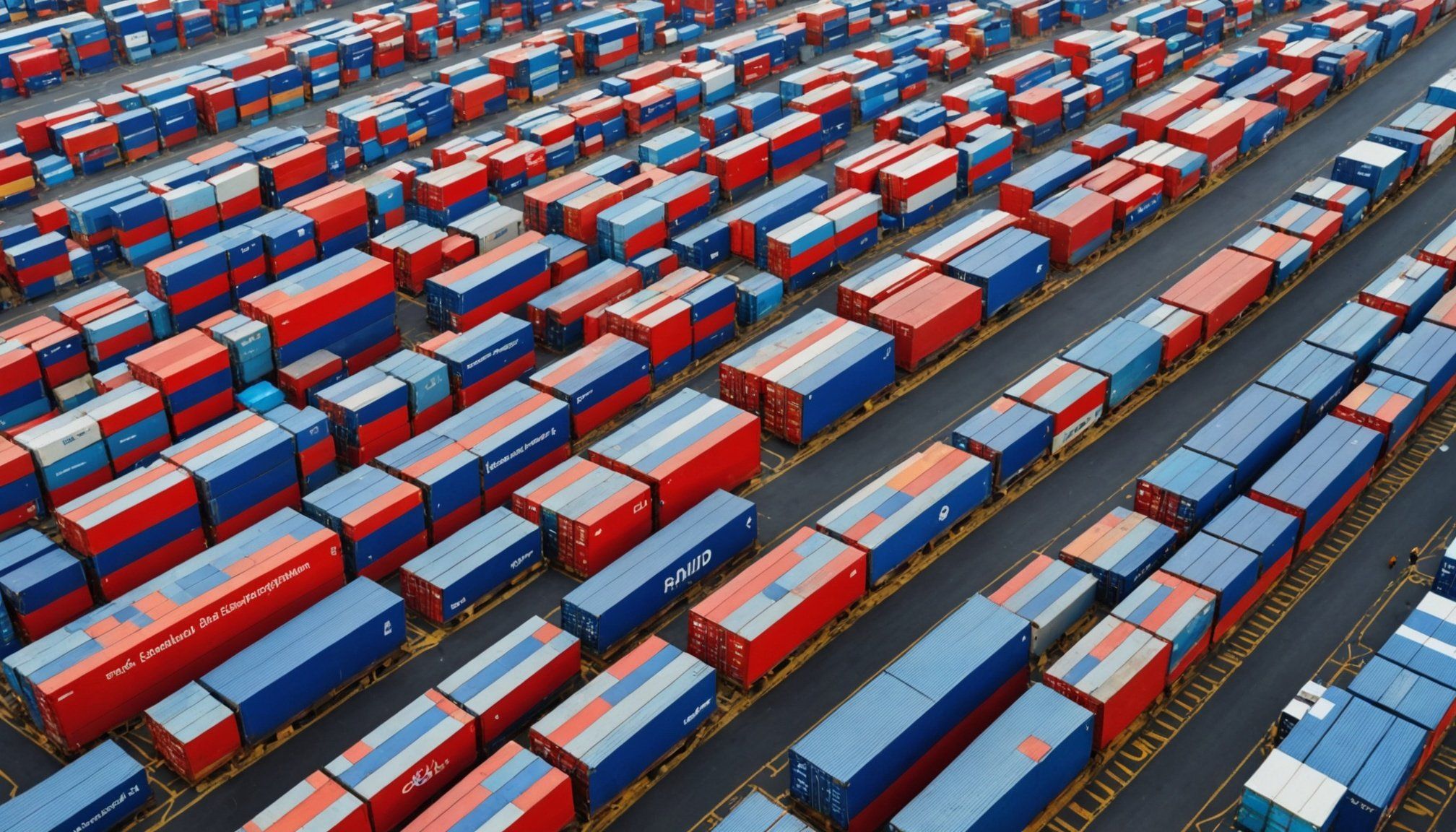Overview of Sustainability in UK Supply Chains
In an increasingly interconnected world, sustainable supply chains are becoming vital. These involve integrating eco-friendly and ethical practices at each stage, from production to delivery. In the UK, sustainability within supply chains is a growing concern, driven by both regulatory pressures and consumer demand.
The importance of sustainability cannot be overstated. A sustainable supply chain reduces environmental impact, enhances brand reputation, and ensures long-term profitability. A recent study highlighted that nearly 70% of UK companies have prioritized sustainability, showcasing a significant trend towards greener practices.
In parallel : Top Strategies to Propel Your Business Forward in the UK for 2024
However, achieving this is challenging. Many UK supply chains face obstacles such as high costs associated with sustainable materials, limited access to green technology, and the complexity of monitoring supplier practices. Furthermore, aligning with rigorous sustainability standards can be resource-intensive.
Yet, overcoming these challenges is crucial for businesses seeking to thrive in today’s competitive marketplace. By adopting UK integration practices, companies are working towards creating more resilient and innovative supply chains, setting an example for others to follow. As this movement gains momentum, it is evident that sustainability is not merely a trend but an essential element of future-proofing businesses and securing a sustainable future for the industry.
Also to see : Optimizing UK Home Battery Storage for Peak Renewable Energy Efficiency
Innovative Strategies for Sustainable Integration
Incorporating innovative supply chain practices is crucial to achieving sustainability goals in the UK. These pioneering methods address diverse aspects, including the circular economy models, technology, and collaborative partnerships.
Circular Economy Models
Adopting principles of a circular economy involves designing out waste and pollution, keeping products and materials in use, and regenerating natural systems. UK companies like Unilever and M&S are championing these models by rethinking their production processes. The benefits are manifold: promoting resource efficiency, reducing environmental impact, and offering competitive advantages.
Technology and Automation for Sustainability
Technology plays a pivotal role in enhancing sustainability within supply chains. IoT devices, AI, and blockchain technologies can streamline operations, optimise resource usage, and improve transparency. For instance, Tesco utilises AI for inventory management, significantly reducing waste. These advancements promise a robust future for eco-friendly practices as tech continues to evolve.
Collaborative Supply Chain Partnerships
Partnerships are a linchpin in promoting sustainability. Successful ventures, such as the collaboration between Sainsbury’s and WWF, exemplify the power of joint efforts. By pooling resources and expertise, companies can better tackle sustainability challenges and innovate. Strategies fostering effective partnerships focus on aligning goals, establishing trust, and ensuring mutual benefits.
Case Studies of Successful Sustainable Practices
The UK’s drive toward sustainability in supply chains is peppered with noteworthy sustainability case studies that offer invaluable learning and inspiration for others. Esteemed companies such as Rolls-Royce and Unilever demonstrate exemplary UK implementation examples that underscore how strategic efforts can foster impactful change.
Rolls-Royce, for instance, has adopted a holistic sustainability strategy. By overhauling their logistics operations, they have embedded eco-friendly methodologies which sharply reduce carbon footprints, positively impacting both the planet and their bottom line. Their initiatives include transitioning to biofuels and enhancing energy efficiency across their production line.
Similarly, Unilever has embraced sustainability by integrating a comprehensive water stewardship programme. Focusing on water conservation, this effort not only safeguards water resources but also provides tangible economic benefits by cutting operational costs. The programme highlights the broader impact of sustainable practices on resource management and operational efficiency.
Lessons learned from these success stories emphasize the value of aligning sustainability goals with core business strategies. Strategic implementation bolsters brand reputation and compliance with regulations, while the pursuit of sustainability initiatives paves the way for increased resilience and innovation across supply chains. These examples illustrate the transformative potential of committed sustainable practices in the UK market.
Tools and Resources for Sustainable Supply Chain Assessment
Establishing a sustainable supply chain demands meticulous evaluation and adaptation. Supply Chain Assessment Tools play a pivotal role in aiding companies to scrutinise their operational practices for sustainability.
Assessment Frameworks
A spectrum of assessment frameworks provides structured paths for businesses to appraise sustainability within their supply chains. Tools like the Global Reporting Initiative (GRI) and ISO 14001 are widely adopted for their comprehensive metrics. GRI focuses on economic, social, and environmental dimensions, whereas ISO 14001 offers a systematic approach to managing environmental impact.
Choosing the right framework depends on the specific needs and goals of a business. Consider factors such as industry sector, regulatory requirements, and resource availability. Implementing assessment frameworks involves setting clear objectives, training staff, and periodically reviewing outcomes to ensure continuous improvement.
Industry Resources and Best Practices
Numerous industry resources assist companies along their sustainability journey. Organisations such as the Carbon Trust offer guidance and support, while industry-specific benchmarks assist in gauging performance. Leading sustainable supply chains illustrate best practices like transparent reporting, stakeholder engagement, and lifecycle analysis. These resources collectively empower businesses to foster sustainability effectively, paving the way for long-term impact.
Benefits of Sustainable Supply Chain Innovations
Implementing sustainability in supply chains offers a vast array of advantages. Central to these are the economic benefits businesses can achieve. Embracing eco-friendly practices often leads to enhanced efficiency and reduced costs, particularly through optimised resource management and waste reduction. Furthermore, sustainable innovations can boost profitability by opening up new markets and appealing to environmentally conscious consumers.
From a social impact perspective, sustainable supply chains foster positive relationships with communities. Companies that engage in ethical practices often enjoy improved public perception and greater trust, which can translate into enhanced brand loyalty. By supporting fair labour conditions and local economies, businesses contribute to societal well-being, setting a precedent for corporate responsibility.
Environmental benefits are equally significant. By lowering emissions and conserving natural resources, sustainable practices help companies comply with strict environmental regulations. This not only mitigates risks associated with legal noncompliance but also promotes long-term viability. Meeting regulatory standards enhances a company’s reputation, making it a leader in sustainability efforts.
Ultimately, these innovations do more than improve individual supply chains; they create value by leading to a more sustainable and ethical global marketplace. Such practices ensure that companies are not just surviving, but thriving in a competitive and eco-conscious world.











